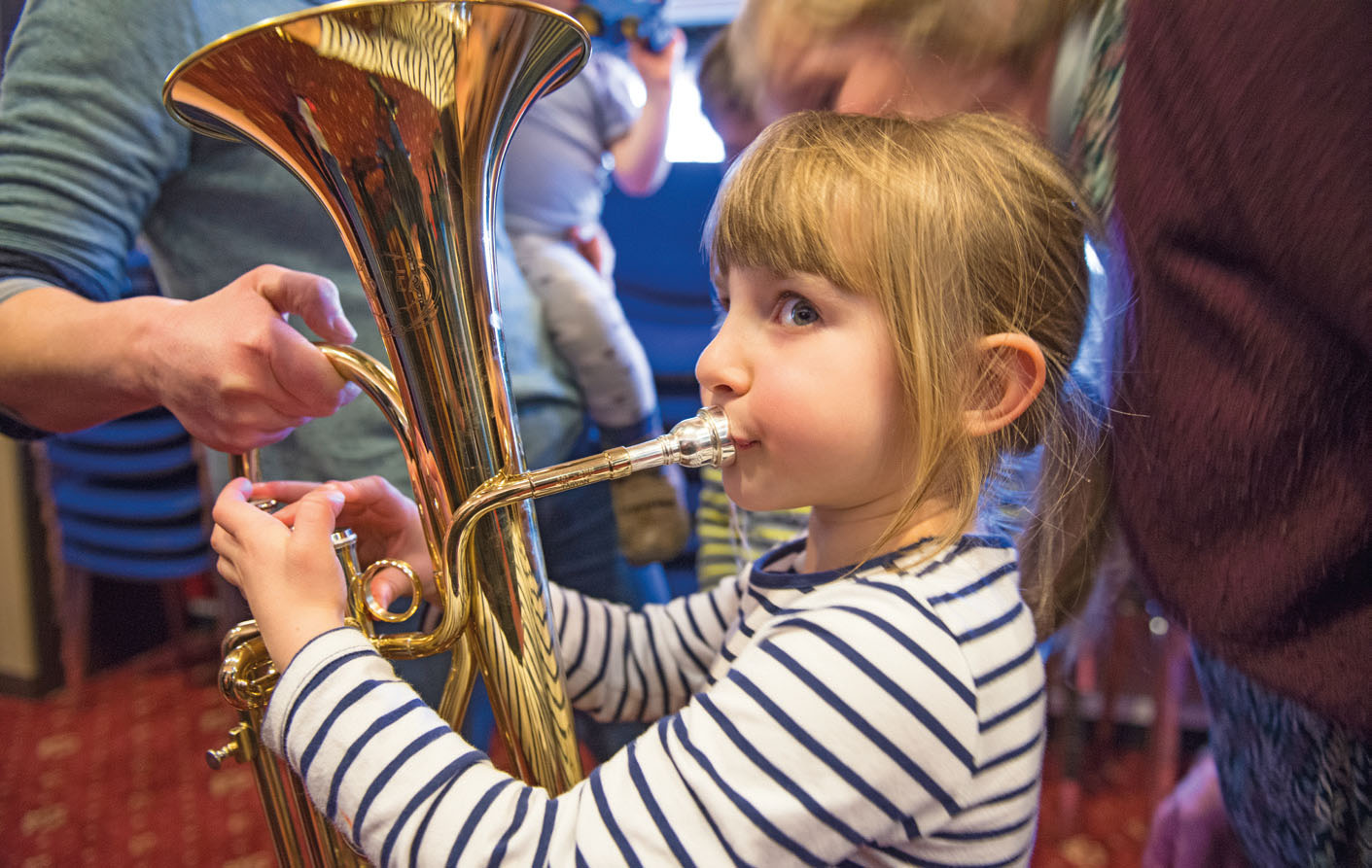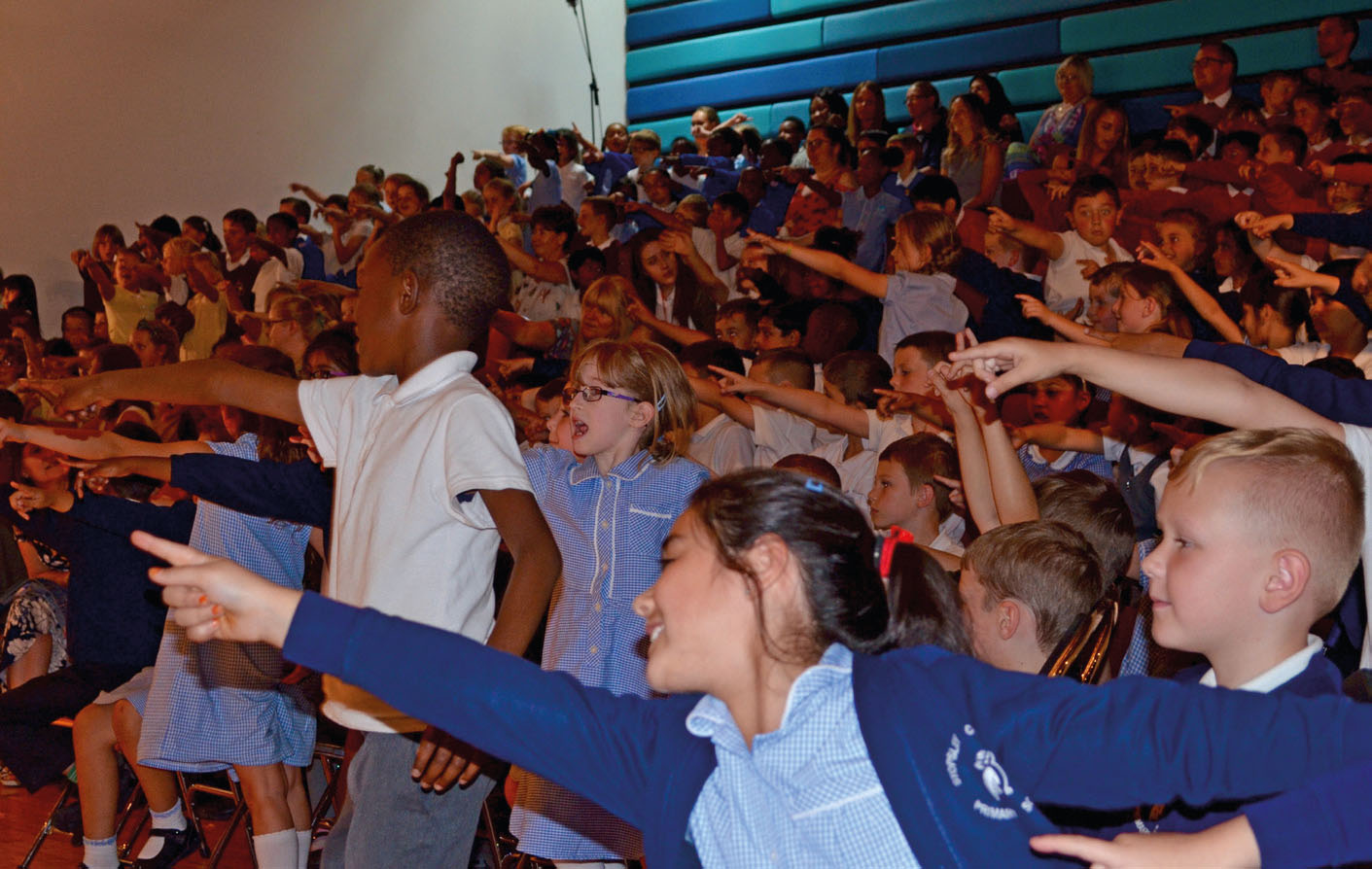
Simultaneously entertaining and educating a few hundred primary age children at the end of term on a hot and sticky Friday morning is a lot to ask of anyone. But after Orchestras Live's penultimate City of London Sinfonia concert – given as part of a week of events at the UK Centre for Carnival Arts in Luton – Kerry Watson, the town's music service manager, considered her £40,000 investment to be money well spent.
Luton is one of a number of hubs buying in the services of Orchestras Live, a London-based charity which, for more than half a century, has been attempting to make world-class orchestral music relevant to the lives of people who might not otherwise come across this particular genre.
In a typical year, Orchestras Live creates more than 200 bespoke projects and events. It reaches 45,000 audience members across England in live orchestral performances and it includes at least 1,000 children with special educational needs in its flagship projects. It brings an estimated £100,000 of additional funds into local communities and it develops work with 20 world-leading orchestras, 65 investing partners and 18 music education hubs.
The organisation's work now stretches right across England, promoting British orchestras and their related education projects, helping them extend their reach, especially in parts of the country which are currently under-served by the arts, with the aim of leaving a long-lasting legacy for both those who take part and the community at large.
Luton's Kerry Watson is still evaluating instrumental take-up after last year's work with Orchestras Live but having seen The Wish project delivered to more than 2,600 children in Bedford, Luton and Dunstable in just one week, she is convinced of the scheme's value.
‘We wanted to guide primary school children into their first experience of a full orchestra, giving the young people experiences of different sections and different instruments, in order to inform their instrumental lesson choice.
‘After last year's project, we decided to commission the composer and conductor John K Miles to write a sort of new Young Person's Guide to the Orchestra,’ she says. ‘What he has come up with is wonderful: beautiful melodies with an inspiring story for the presenter Claire Henry, who encourages everyone, through song and actions, to fix a broken-down orchestra. The children have not only engaged really well with the orchestral concert performances but they've got a lot out of the workshops that have been run in the schools too.’
Older pupils from the local music service play side-by-side with musicians from the City of London Sinfonia, adding to a sense of inclusiveness that may well encourage the KS1 pupils to take up an instrument. At the end of the performance, a big Disney-style climax, conductor John K Miles asked the children to make their own wishes come true, to follow their dreams. ‘What do you wish?’ he asked his audience – and every child, without exception, said ‘I want to play the violin, I want to play the double bass, I want to play the cello…’
These were pupils who would, in their everyday lives, probably have never come across a live orchestra, and Watson is determined to give them the opportunity to follow their dream-of0the-day with lessons in the borough's schools next term.

Trying for size: A Sound About concert in Carlisle © CHARLIE HEDLEY
‘An orchestra can be so much more than a concert giver’ says Stuart Bruce, Orchestras Live's partnership manager and project lead for The Wish. ‘With the right partners, it can be a rich musical resource, transforming how young people and their teachers can engage with live music-making.
‘We work with music education hubs and other partners, creating bespoke projects to help teachers develop their skills, their curriculum and establish partnerships with world-class orchestras. 35% of our work has been dedicated to partnerships located in the bottom third of the arts engagement index, where this sort of project is desperately needed.’
Projects for people with additional needs have been successful too: in Mansfield, the Able Orchestra has used digital equipment to enable people with profound disabilities to contribute; and Hear and Now is an intergenerational project with Fusion Youth Singing, Tibbs Dementia Foundation's Music 4 Memory and the Philharmonia Orchestra in Bedford.
Relaxed performances, where the audience can move around and don't need to stay silent – aimed at providing a welcoming, inspirational live experience for children with additional needs and their parents and carers – were launched with pilot concerts in Kettering and Colchester in 2015. The idea has since spread to the BBC Proms.
A teaching assistant who was helping a deaf pupil at one of the Luton hub performances wrote immediately after the concert: ‘I just wanted to say that we had the most wonderful time. This was the first time that the young girl I was supporting has had an opportunity to experience orchestral music and it was in such a fun and accessible way.
‘She has a cochlear implant and can hear most of the music but as she is learning sign language we taught her the songs by heart so she could sing and sign the songs with everyone else. She was so thrilled to be able to join in with the production and I believe this will be an experience she will remember for a long time.’
Karen Perkins, director of culture and engagement at Culture Trust-Luton left the performance telling anyone who would listen: ‘I am absolutely convinced that this project should be taken to schools everywhere. It teaches the children so much; it's accessible, it's creative and theatrical and everyone, adults and children alike, are all are so engaged having the opportunity to watch a live orchestra.’

The Wish: Reached more than 2,600 children in one week last month © KERRY WATSON








